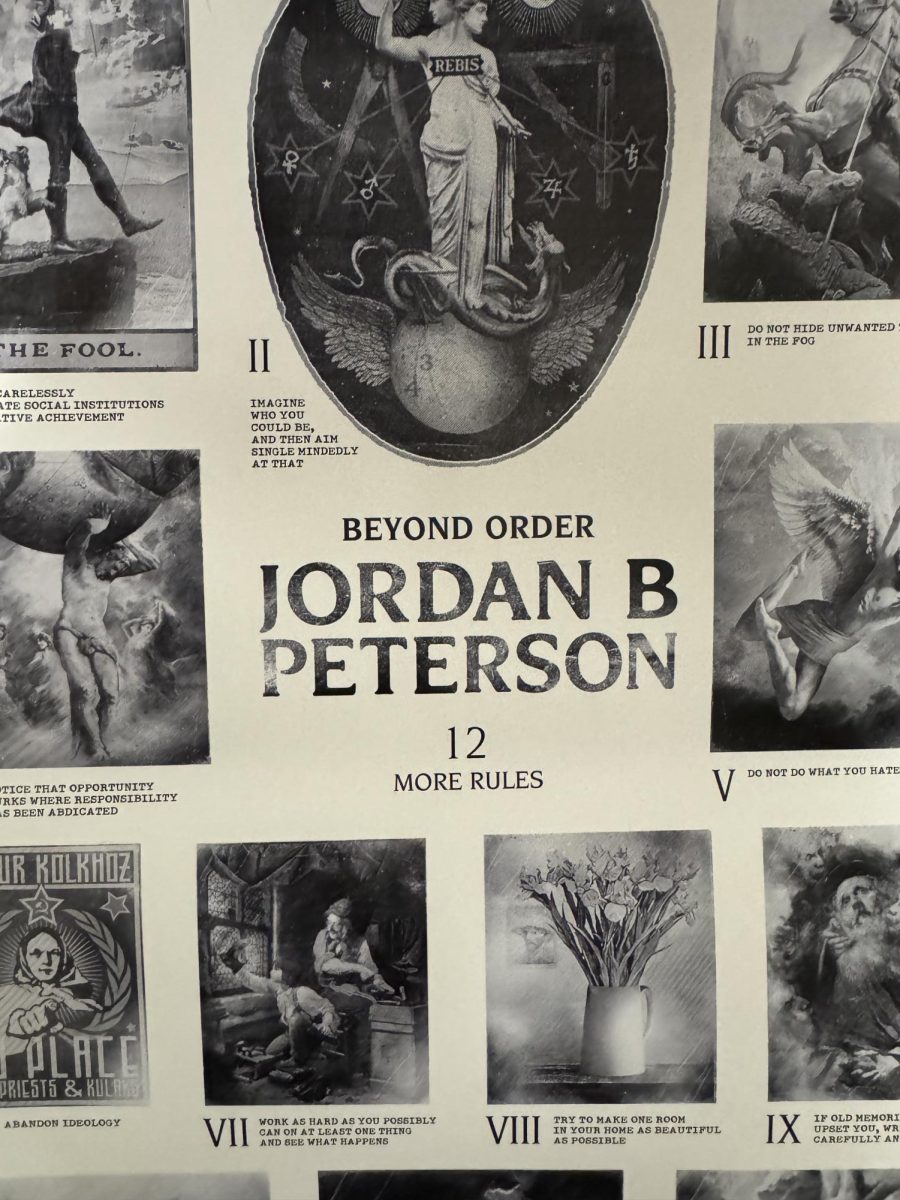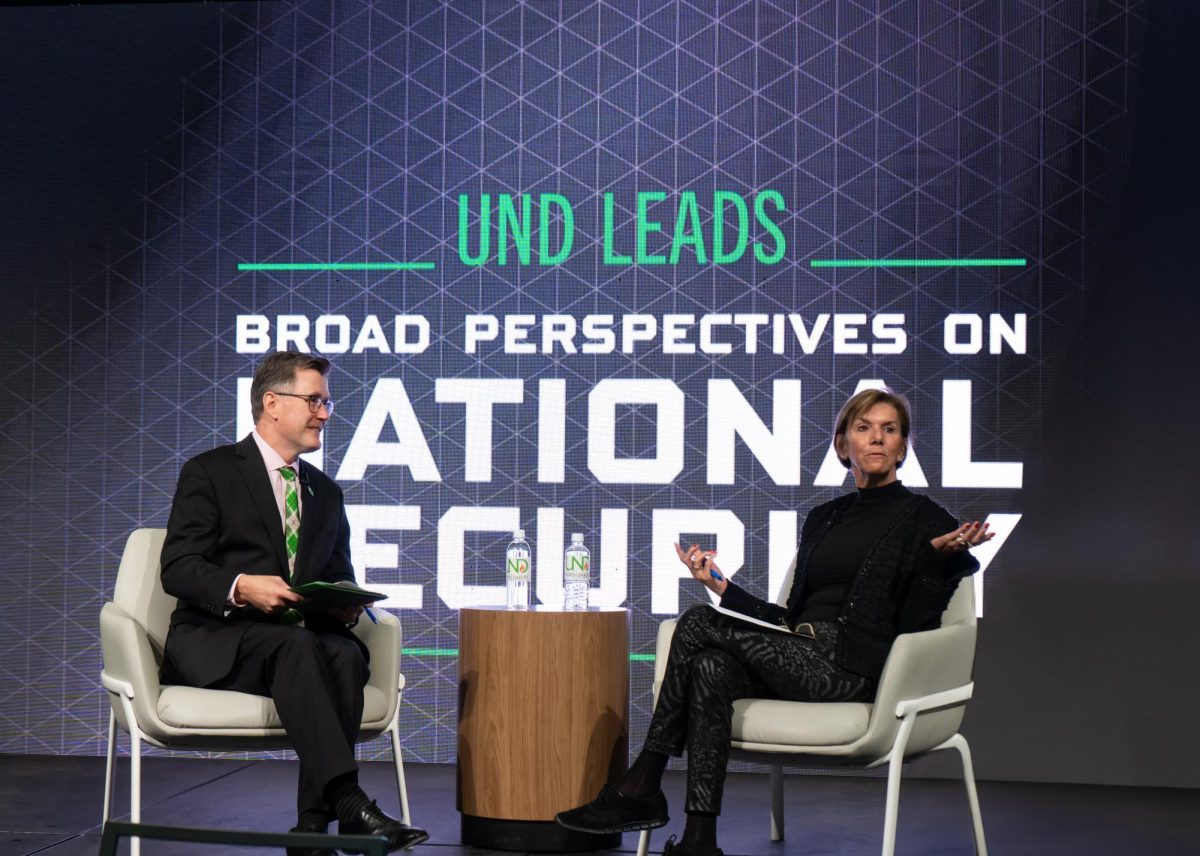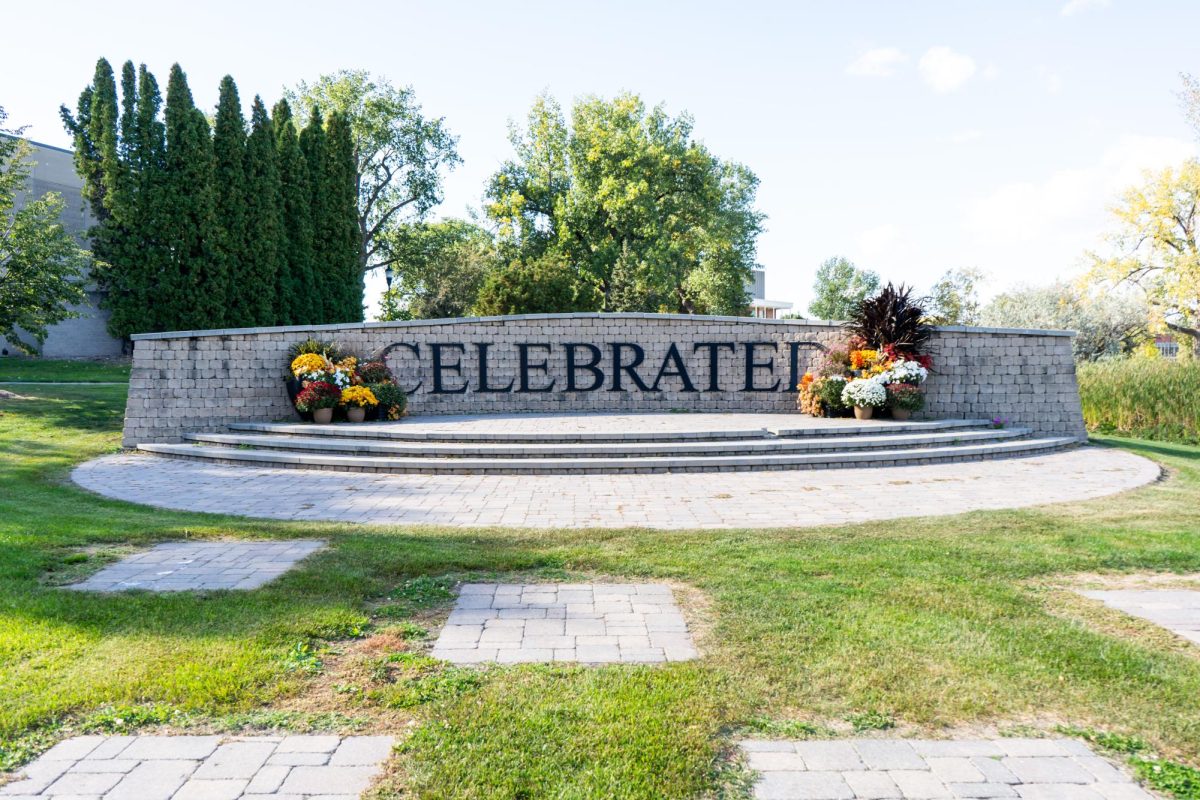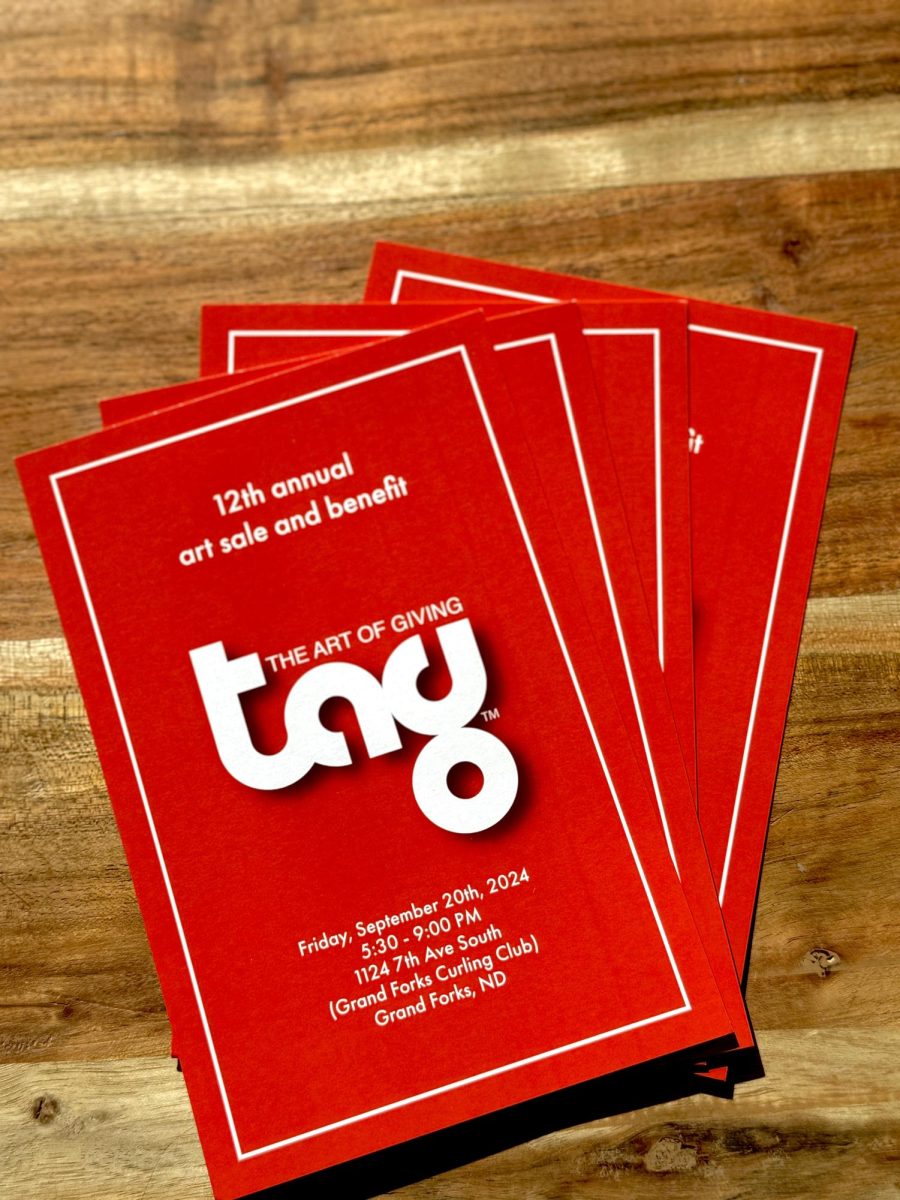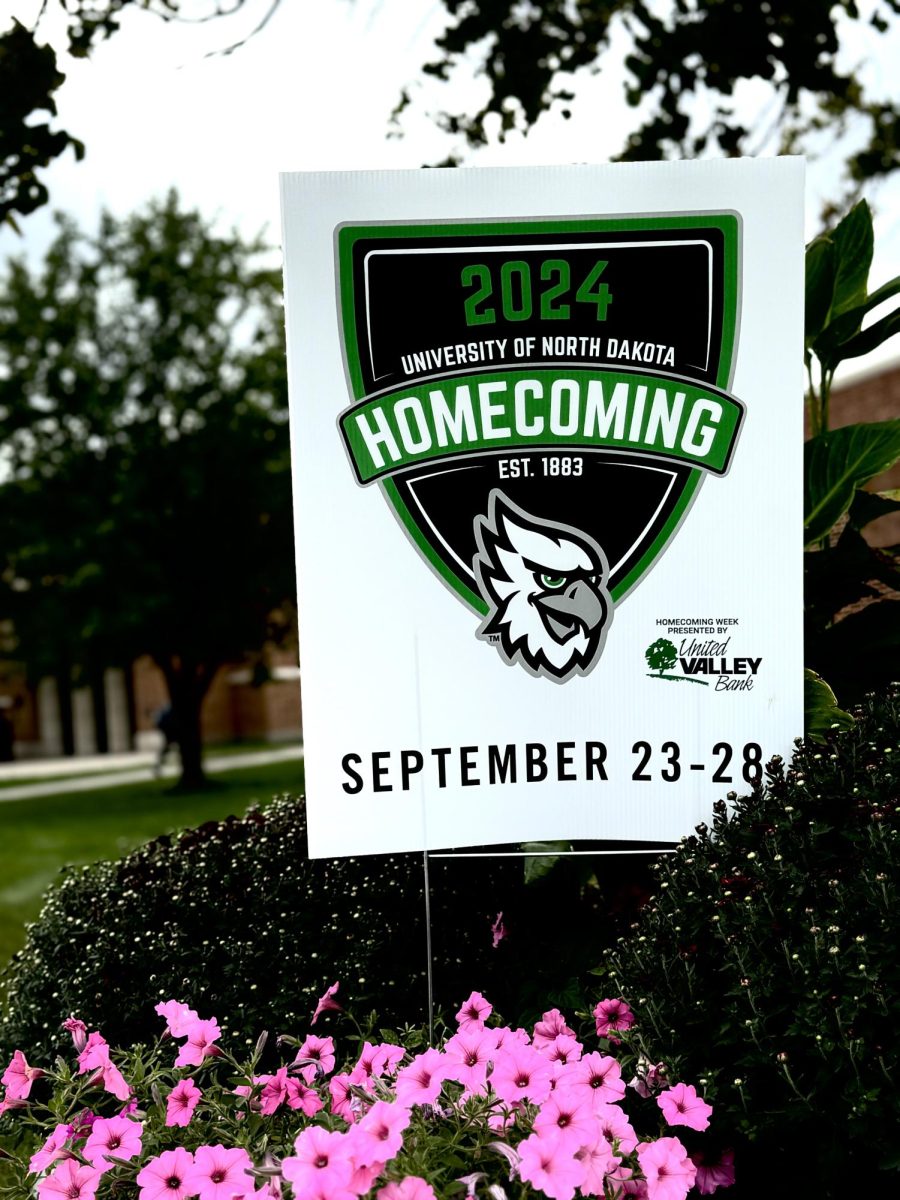At the Scheels Arena in Fargo this past Wednesday night, a crowd gathered from around the state to listen to Dr. Jordan B. Peterson. Peterson, a world-renowned psychologist and cultural critic, made a stop in North Dakota for his “We who Wrestle With God Tour.” The tour delves into themes of sacrifice, the power of stories, and what it means to wrestle with God.
The event began with a performance by David Thomas Cotter, whose musical selections set the tone for an evening of introspection.
Tammy Peterson, Jordan’s wife, opened the discussion with a candid recount of her personal spiritual journey. She shared her transformation from a confrontational individual to seeking the best way forward, attributing her peace and improved quality of life to her faith in God and patience. The psychologist’s wife stated, “There is a lot of darkness, and you only need a little bit of light,” focusing on gratitude, and overcoming resentment.
Jordan Peterson’s entrance was met with enthusiastic applause. Peterson immediately engaged the audience with the question, “why do we wrestle with God?” Peterson argues that the question relies on the prioritization of values and navigating life’s challenges through an internal dialogue with one’s conscience.
In that sense, wrestling with God is not a physical struggle but a mental one as we strive to move towards our goals as individuals and as a group. To Peterson, the answer was that organizing one’s values aids the movement of the group toward a final and united sense.
But what is the best way a society can aggregate its priorities? In Peterson’s eyes, stories are the prime method.
Peterson underlined stories as learning tools, focusing on their role in teaching people how to navigate the world. He argues that stories, from ancient texts to modern cinema, encapsulate the essence of human experience.
Peterson claims that these stories not only serve an entertainment purpose, but exemplary purposes as well. Stories teach about courage, virtue, and the consequences of actions. Furthermore, stories guard against the anxiety of choosing from an overload of diverse ways to live. Peterson argues that when combined with the belief in a higher power, stories foster hope, reduce anxiety, and prevent conflict by facilitating cooperation.
Stories also function as cosmic dramas, displaying hierarchies of values through the journeys of their protagonists. By immersing ourselves in these dramas, we adopt their perspectives and navigate the world with renewed understanding and empathy. Peterson states that stories are structured as explorations of values, guiding us to perceive and align with broader and shared human experiences.
Peterson asked another question, “how is it that the ideal character should be characterized?” The psychologist answered with a biblical reference.
Peterson discussed the stories of Cain and Abel, interpreting Cain’s failure to offer his best as a cautionary tale of envy and retribution. Peterson then referred to Noah’s Ark as an example of sacrifice and moral fortitude. With the story of Noah, the protagonist was presented as a beacon of righteousness in a corrupt world, whose preparedness for the flood symbolized the importance of foresight and sacrifice for future generations.
“There is no difference in the indwelling voice of conscious, and the manifestation of the spirit of what is to put in the highest place,” Peterson said.
Noah, a good man, was able to act properly and prepare for the looming danger of the flood that decimated the previous generation.
“The storms come and decimate all we see. The man who is good can preserve what is good despite the onslaught of the most destructive chaos,” Peterson claims.
Bringing the story back to sacrifice and understanding lessons of the past, Peterson lamented the modern neglect of rituals, advocating for a return to putting one’s best effort forward as a faith in a better outcome. “There is no difference between sacrifice and work, when you work you sacrifice the present for the future. The result will be that the future improves,” he said. In contrast, Peterson states, “if you do not offer your best, you will not be accepted”.
Peterson finished with the story of Noah’s drunken vulnerability and his son Ham’s disrespect towards him, linking it to contemporary issues of cultural disregard and the consequences of failing to honor the lessons of the past.
Peterson said, “even a good man has his moments of disgrace; a faithless son despises the goodness of his father, even if his father was able to navigate through the worst of storms.”
Peterson argues that Ham’s disrespect for his father is likened to the rebellious nature of youths in their disrespect for the institutions of the past. Societies that have contempt for their traditions, Peterson argues, will degenerate into the chaotic state that existed before the flood. And face the coming storm that will upend their lives.
The lecture concluded with Peterson’s call to wrestle with the inner voice guiding us towards the highest possible version of ourselves. He stressed that life’s journey is fraught with short-sighted decisions, but by pursuing our highest ideals, we can achieve a state of peace and order and face any storm that comes our way.
As Peterson exited to a standing ovation, the impact of his words lingered, challenging the audience to reflect on their paths and the stories that guide them.
Davíd Moreno is a Dakota Student General Reporter. He can be reached at daví[email protected].


